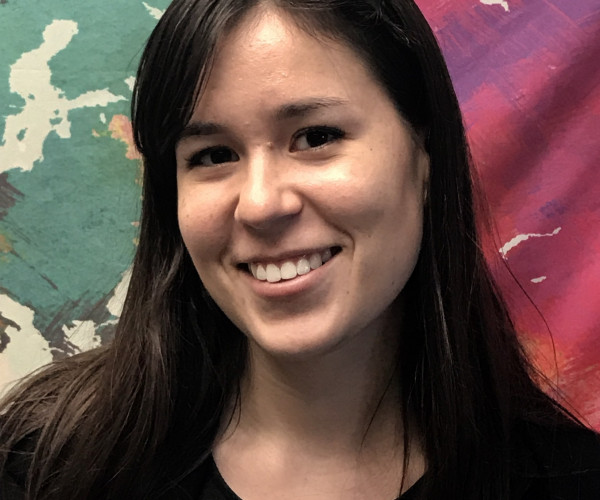Fellowship recipient helps immigrant survivors of domestic violence in counties around Philadelphia
For immigrants who live in the counties around Philadelphia and are victims of domestic abuse or sexual assault, it can be difficult to travel to Philadelphia to obtain legal assistance. But a new project by Penn Law graduate Isabel Abreu L’16 is bringing legal resources to victims where they live.
With the support of a postgraduate fellowship from Penn Law, Abreu is working in the legal services department of HIAS Pennsylvania, where she provides immigration assistance to victims of domestic violence and sexual assault who live in counties outside of Philadelphia.
“Isabel is bringing essential services to clients who are facing two immense challenges — all of the trauma that comes with interpersonal violence, as well as the tremendous uncertainty that immigrant populations are currently facing,” said Arlene Rivera Finkelstein, Associate Dean for Public Interest Programs and Executive Director of the Toll Public Interest Center. “With even one of these challenges, it can be very daunting to seek assistance. By meeting clients where they are in the counties around Philadelphia, Isabel is helping these resilient clients access legal remedies that can give them a fresh start in life.”
Bucks County has large immigrant populations, but not many legal service providers — especially in languages other than English. Abreu, who speaks Spanish, meets with clients in locations close to them, like local women’s shelters, or does phone interviews. HIAS also provides volunteer translators when needed.
At the start of her project, she spent much of her time simply been getting the word out to shelters and victim’s rights groups. There are two main types of immigration relief available to the victims of crime or domestic violence, Abreu explained.
A “U visa” provides a path for victims of crime to legal permanent resident status, provided they have been helpful in the prosecution of the crime and can obtain a certification from law enforcement attesting to that fact. Abreu works with victims to apply for the law enforcement certification and obtain the U visa.
She also files petitions under provisions of the Violence Against Women Act specific to victims of domestic abuse who were abused by a legal permanent resident or a U.S. citizen. In most cases, that person is the victim’s spouse.
“Instead of relying on their abuser to sponsor their immigration application through marriage, it enables that person to essentially petition for themselves,” Abreu explained. In these cases, the abuser has no knowledge of or input on the petition.
Abreu is originally from south Texas, and her father is an immigrant from Mexico. She always planned to study immigration law. The question wasn’t what she was going to do with her law degree, she explained, it was where she would practice.
“Immigration was always part of my experience because the people I went to school with were immigrants,” she said. “In border life, it’s an accepted fact — immigrants are part of the community.”
In the year before law school, she volunteered in Mexico City to work with a nonprofit that works with immigrants that have been deported back to Mexico, and South American immigrants currently in Mexico.
And when she came to Penn Law, she participated in the Interdisciplinary Child Advocacy Clinic, where she was able to take on a case with an immigration element.
“It was so refreshing to leave that theoretical world behind and to start applying the skills I was learning in law school to client representation through my law school clinics,” she said.
She also worked in the Transnational Legal Clinic to represent a family in their asylum hearing, as well as working with a victim of trafficking and a victim of crime in the United States.
During her time at Penn Law, she decided that she wanted to stay in Philadelphia and work with HIAS and the Philadelphia community.
Abreu knows that she might not see the results of her work with victims. A typical U visa case takes eight years, she noted.
“These cases take a long time — normally years and years before there’s a decision on the petition that’s been filed or any kind of legal status that’s been filed,” she said.
But she will be continuing her work with HIAS Pennsylvania past her Penn Law Fellowship year — she recently received an Equal Justice Works Fellowship sponsored by Merck & Co., Inc. and Covington & Burling LLP to extend her project for two more years.





